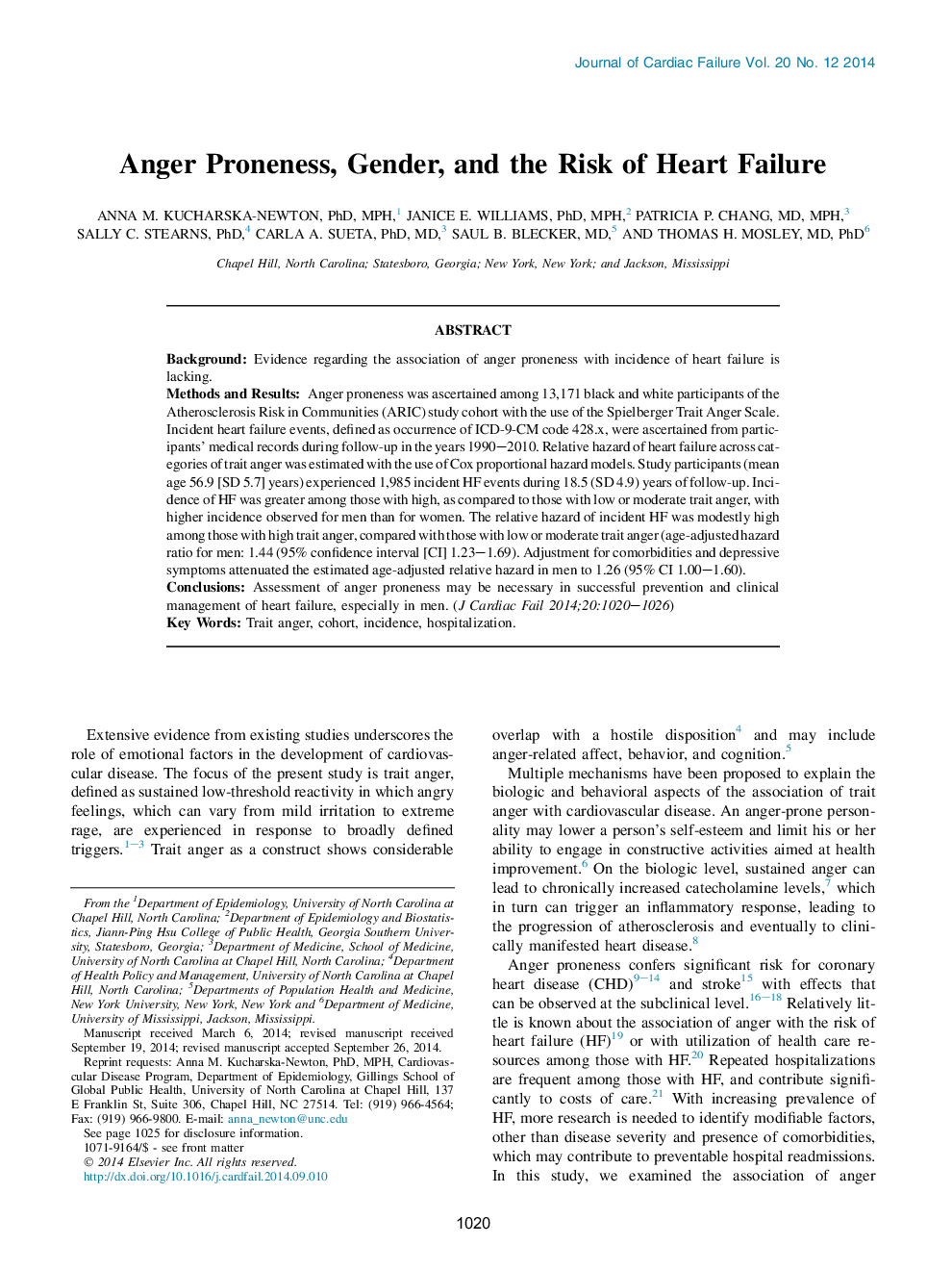| Article ID | Journal | Published Year | Pages | File Type |
|---|---|---|---|---|
| 5983724 | Journal of Cardiac Failure | 2014 | 7 Pages |
BackgroundEvidence regarding the association of anger proneness with incidence of heart failure is lacking.Methods and ResultsAnger proneness was ascertained among 13,171 black and white participants of the Atherosclerosis Risk in Communities (ARIC) study cohort with the use of the Spielberger Trait Anger Scale. Incident heart failure events, defined as occurrence of ICD-9-CM code 428.x, were ascertained from participants' medical records during follow-up in the years 1990-2010. Relative hazard of heart failure across categories of trait anger was estimated with the use of Cox proportional hazard models. Study participants (mean age 56.9 [SD 5.7] years) experienced 1,985 incident HF events during 18.5 (SD 4.9) years of follow-up. Incidence of HF was greater among those with high, as compared to those with low or moderate trait anger, with higher incidence observed for men than for women. The relative hazard of incident HF was modestly high among those with high trait anger, compared with those with low or moderate trait anger (age-adjusted hazard ratio for men:Â 1.44 (95% confidence interval [CI] 1.23-1.69). Adjustment for comorbidities and depressive symptoms attenuated the estimated age-adjusted relative hazard in men to 1.26 (95% CI 1.00-1.60).ConclusionsAssessment of anger proneness may be necessary in successful prevention and clinical management of heart failure, especially in men.
